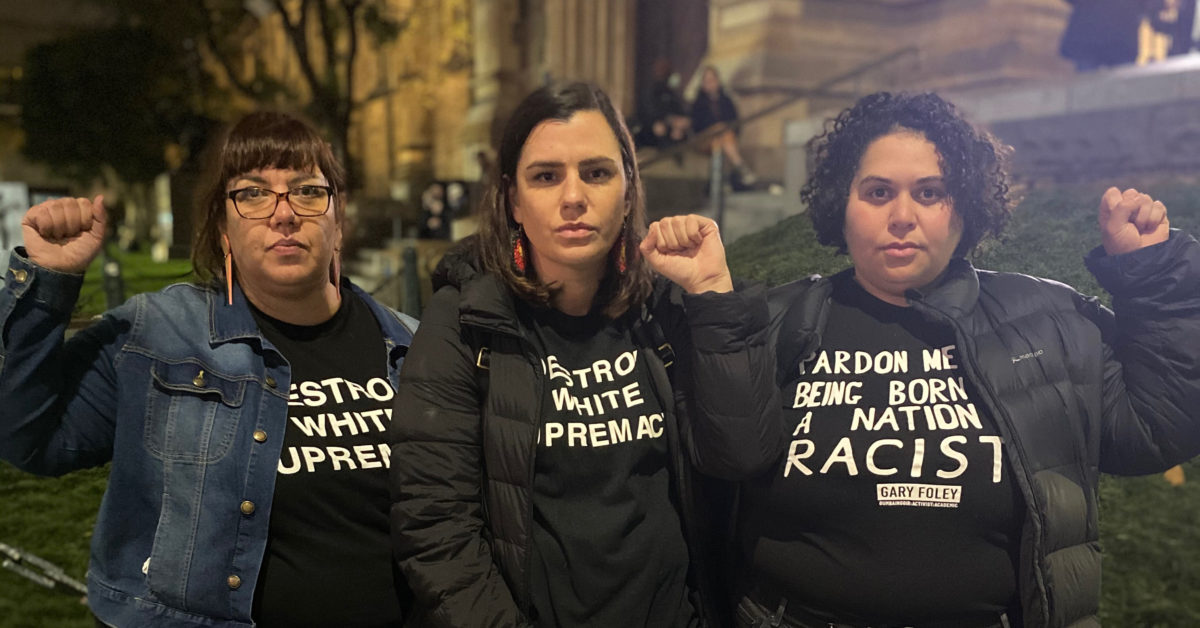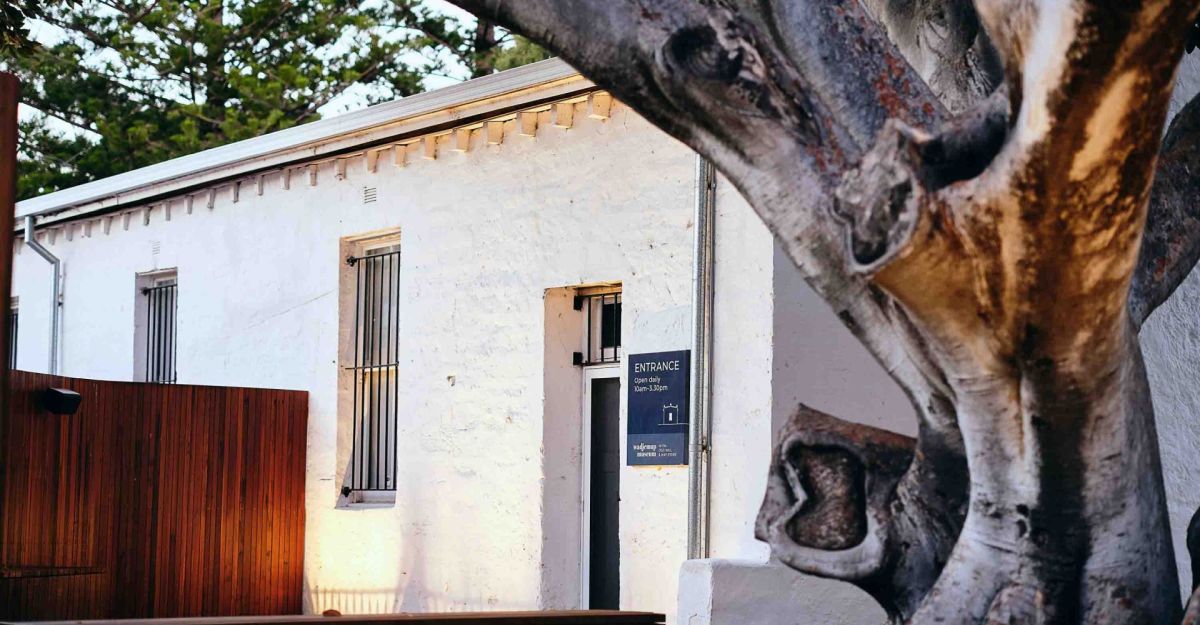After three arduous years, Victoria Police have today withdrawn their charges against two organisers of the 2020 Black Lives Matter protest. Whilst we welcome their decision, we note that their mediocrity gave them no other option. Emboldened by their state-sanctioned impunity, Victoria Police’s ineptitude hit a dead end. Pigs cannot fly.
The Melbourne Black Lives Matter protest was orchestrated in response to, and in unison with, the global call to action after the police murdered George Floyd in broad daylight. Aboriginal & Torres Strait Islander people in Australia are no strangers to racist police killings. Having been hunted and hated by police since invasion, we answered the call and seized the moment to foreground the global epidemic of racism and police brutality.
Deaths in custody in Australia are a matter of profound urgency, but for too long have been met with apathy. We are losing our loved ones monthly. Aunty Sherry Tilberoo, Ms Dhu, Raymond Noel Thomas, John Pat and Kumanjayi Walker are just some of the loved ones taken at the hands of police in this colony. The protest platformed voices of families of people who died in custody as tens of thousands stood in solidarity.
Unable to look themselves in the mirror and reckon with the reality of what they see, Victoria Police responded by charging both of us, purposely dragging the case through courts for the last three years. History is alive and the primary reason for this hyper-surveillance and intimidatory tactics was never about public health and safety, but rather an explicit attempt to thwart a Black-led uprising from bursting out of the empire’s belly.
Victoria Police’s charges are best summarised by Magistrate McKenna, who, in criticising the police’s case, said that ‘some of the wording in the original charge was so difficult to understand or comprehend, it may well have been made by a Martian.’
Whilst we are relieved by Victoria Police’s decision to withdraw, we strongly believe that this moment should remind us all of the criticality of abolition conversations and actions. Police do not make our communities safer. They are one of the greatest threats to public health and a cancer that continues to metastasis, with every inflection point resulting in additional resources, militarisation and powers.
Our call to ‘DEFUND THE POLICE’ is an act of remembering, resistance and imagining. Police are incompatible with compassionate and thriving communities. As Russell Marks writes,
any honest accounting of historical fact informed by basic notions of justice and legal reason must conclude that [police] and prisons are at the apex of a continuing colonial project determined to insist on an exclusive sovereign right that cannot exist.
As sirens continue to echo throughout our communities, we are reminded of the government’s neglect and their incurable contempt. It’s been more than forty years since the extrajudicial death of John Pat, and the ensuing outrage and community action and agitation that forced the launch of the Royal Commission into Aboriginal Deaths in Custody. The Commission handed down some 339 recommendations which would prevent deaths and save lives.
Today, the majority of those recommendations are still yet to be implemented. Consequently, at least 527 Indigenous people have died preventable deaths in custody since the tabling of these findings. The prison industrial complex continues to expand and we are now the most incarcerated people on the planet.
Just like every other inquiry, the 1991 Royal Commission into Aboriginal Deaths in Custody was merely another example of how state reform serves police and corporate interests. These commissions are the mere equivalent of putting lipstick on a pig (pun intended) and an empty endeavour designed to reproduce more gendered and racialised violence under the guise of ‘evidence based responses’.
Last week, Coroner McGregor found that Aunty Veronica Nelson’s death could have been prevented if the Victorian Government implemented the Royal Commission recommendations, Beating the ‘tough on crime’ drums, Daniel Andrews actively ignored both the Commission’s recommendations and the unified voices of community to strengthen bail laws—laws that ultimately contributed to the tragic death of Aunty Veronica Nelson and many others.
Police don’t solve a mental health crisis, support those escaping family violence, or people living with active addictions—they criminalise them. We need strong social security blankets and models of relational care, not a militarised police force with extreme surveillance powers and a mandate to beat us into obedience.
Victoria Police received a whopping $3.9 billion in funding for 2022-2023, an amount of money that can only be rationalised by those sleepwalking into the apocalypse. Imagine the regenerative work that could be accomplished if that money (along with the billions of other dollars being funnelled into other systems of surveillance) were invested into grassroots communities that are asking for care, not incarceration. Imagine if we were as committed to ending poverty as we are to destroying the living lands, waters and skies that we were born out of!
Abolition is about redirecting funds towards providing health care, housing, education and meaningful jobs. Is it really too much of a radical ask that every kid has access to secure housing, quality food and the best education? Is it too much for wanting to restore our dignity and build healthy communities? Poverty is a political choice and police simply advance that mandate.
Professor Chelsea Watego and Associate Professor Lisa J Whop say that ‘race operates as a structure of power‘, and that power structure is the lifeblood of every system. First Nation’s sovereignty and justice is an antidote to this colonial disease, which is why we fight to abolish settler colonial Australia and all of their mediocre institutions. We won’t stop until we receive our land back and retrospective justice is served.
Always was, always will be, Aboriginal land.
Proceeds from this piece have been donated to The Dhadjowa Foundation to support their campaign for strategic, coordinated and culturally appropriate support for Aboriginal and Torres Strait Islander families whose loved ones have died in custody.
Photo credit: Dettie Onus-Browne



